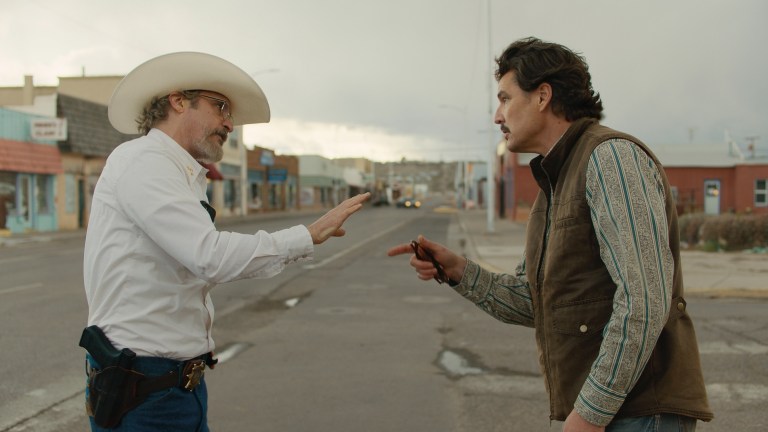Ari Aster Defends the “Mean-Spirited” Eddington
Ari Aster knows that Eddington is upsetting, but so is the world we live in.

This post contains light spoilers for Eddington.
Ari Aster loves to make viewers feel bad and to leave them confused. His debut feature Hereditary and especially his follow-up Midsommar sparked endless debates about how to interpret the final scenes, or how to make sense of the horrific imagery Aster put on the screen. Even Beau Is Afraid, Aster’s swerve away from horror into absurd comedy, sparked conversation about the film’s many tonal differences.
Aster’s latest film Eddington may be more grounded in reality than any of the director’s previous films, but it’s no less confounding and no less unpleasant. According to Aster, it’s that very grounding that makes his movie so upsetting.
“Eddington is a dark film, and I’ve heard people describe it as mean-spirited,” Aster recently told The Hollywood Reporter. “But again, it’s trying to reflect the mood of the country, and things have gotten really mean. Things are very cruel. This culture is incredibly cruel, and things have gotten really obscene.”
It’s almost admirable how much of that cruelty Aster works into the movie’s 149-minute runtime. Eddington stars Joaquin Phoenix as Joe Cross, the sheriff of the titular New Mexico town, who engages in an increasingly absurd battle against Mayor Ted Garcia (Pedro Pascal). As the conflict escalates, it touches several hot-button issues in our world: masking and COVID protocols, ACAB protests and shadowy billionaire operations, protesters and internet grifters, etc. Eddington builds to an uncomfortable climax and an ironic end for its core characters.
Yet, to hear Aster tell it, Eddington is far less upsetting than the actual world. “In some ways I had to tamp all that stuff down in the film because it could have easily been much more alienating and much more unpleasant,” he explained. “So it was interesting to have to actually sand off the edges in some cases just so it could be digestible.”
As much as it might sound like Aster’s playing coy with his film, he insisted that the complicated nature of Eddington comes from a very personal and sincere place. He confessed, “I’m pretty heartbroken about where we are. I’m very scared. I feel immense dread all the time. This movie came out of that sense of dread, and I certainly see how the film is prescient.”
For Aster, those emotions come out in the film’s complicated politics and tonal shifts. They also make for Eddington‘s bleak, and for some, thematically confusing ending. “I don’t have any answers, and the movie doesn’t pretend to have any answers, but it’s very easy to lose the forest for the trees,” he declared. Even though he hopes Eddington can “pull back far enough to give a broader picture of where we are,” Aster also realized that he has “very limited picture of where we are,” which also feeds into the film.
Thus, while Eddington may address the great political issues of our day, it is still bleak, upsetting, and deeply personal. In other words, Eddington is an Ari Aster movie, through and through.
